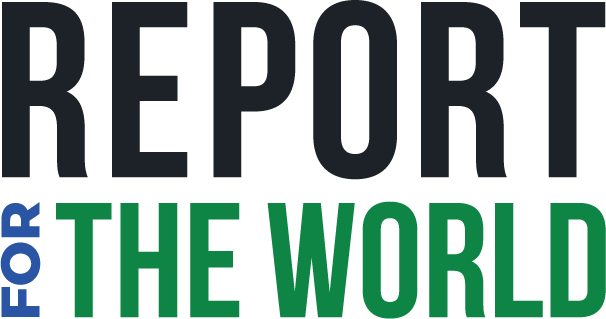By Letícia Duarte
In 2022, Brazilian Indigenous activist Sonia Guajajara was recognized by TIME magazine as one of the 100 most influential people in the world. Now, as the head of Brazil’s first-ever Ministry of Indigenous Peoples, she faces the challenge of implementing the policies she has always advocated for.
A recent achievement came when, following her advice, President Lula vetoed the most controversial points of the Time Frame Bill, which would have limited the ability of Indigenous peoples to gain formal recognition of their ancestral territories. But the challenges keep mounting. Despite Lula’s administration having resumed the demarcation of indigenous lands, the process to formalize the new territories remains stuck in another ministry.
Report for the World spoke with Brazilian corps member Jullie Pereira, who covers indigenous communities for our newsroom partner InfoAmazonia, about the challenges and opportunities presented in the first 10 months of Guajajara as a minister and the impact of the new policies on the communities she covers:
Report for the World. What is the impact of the creation of the Ministry of Indigenous Peoples in Brazil for the communities you cover?
Jullie Pereira: The creation of the ministry was an important milestone for indigenous peoples, especially women, who see the minister Sonia Guajajara as a symbol of women’s empowerment and as a reminder of the strength of this movement. In a recent interview, cacique Panh Ô Kayapó told me about this moment: “In the past, only men could lead, hold positions, represent their peoples. Women could do nothing. Having Sonia at the head of the ministry made me stronger. It strengthens us to face men,” she said. So, having an indigenous woman leading this ministry was the result of this growing movement of women who are fighting for their spaces in their communities every day.
RFW: Sonia Guajajara is an internationally recognized indigenous leader. How do you evaluate her performance as a minister so far?
Pereira: The Ministry of Indigenous Peoples has been able to make itself present in important decisions for Indigenous peoples. I cite as an example the decision of President Lula to veto the Time Frame Bill (PL 2903). It was a long-awaited response that required the minister’s coordination. But she also suffered a significant setback at the beginning of the year when Congress did not allow the Ministry of Indigenous Peoples to be responsible for declaring indigenous lands within the territory demarcation process. This was very detrimental to the management. The process continues with the Ministry of Justice, which has not yet formalized any declaration of lands.
RFW: What is the biggest challenge ahead on indigenous rights?
Pereira: Indigenous peoples are at a crucial moment in Brazil because they are fighting to prevent the country’s territorial policy from causing more deaths. They are trying to protect not only themselves but also the forest. The Time Frame Bill and its developments (that are still in discussion in the Congress) are the biggest current challenges and they are all focused on it. Then, we have the challenge of demarcating indigenous lands, which needs to be faster and has a strong impact on reducing deforestation.
RFW: About the media coverage of Brazilian indigenous peoples, what areas do you think are receiving little attention from the media, whether national or international?
Pereira: I see that the impact of the climate crisis on indigenous peoples and their territories still needs more attention. We know that there are floods, droughts, daily disasters of landslides, and houses dragged by mud. In Manaus, the smoke takes over the city. We see on the news the impact of high temperatures in Europe and the United States. However, we see little about how all this impacts certain indigenous peoples, their villages and their children. It deserves more attention.
RFW: Any reading you recommend for those who want to learn more about it?
Pereira: I always recommend Ideas to Postpone the End of the World, by Ailton Krenak. Now this recommendation gets more special as, a few months ago, the author became the first indigenous person elected to the Brazilian Academy of Letters. His book is an important basis for understanding his vision of the capitalist world and how this model is affecting the way of life of indigenous populations. It is a good book to start understanding what we are living through.

